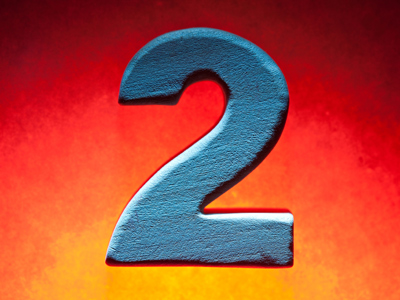
Ask the AI Tutor
Need help with Year 1 Numbers - Counting in Twos? Ask our AI Tutor!
AI Tutor - Lucy
Connecting with Tutor...
Please wait while we establish connection

Can you count in twos?
Year 1 Numbers - Counting in Twos
In KS1 Maths, practise counting in twos: 2, 4, 6, 8. Use pairs of socks and bike wheels to spot the pattern and jump confidently on number lines.
Question 1
Which two numbers are missing from this sequence?
8, 10, __, 14, __, 18
8, 10, __, 14, __, 18
12, 14
8, 10
10, 12
12, 16
The two missing numbers are two more than the number just before them in the sequence
Question 2
Numbers in the two times table are all ___?
odd
even
the same
ending in zero
Numbers in the two times table are always even
Question 3
Which of these numbers would all appear in the two times table?
13, 42, 35, 66, 99
23, 32, 43, 65, 81
22, 19, 34, 86, 10
12, 34, 22, 68, 20
All the numbers must end with 2, 4, 6, 8 or 0 for them to be in the two times table
Question 4
Numbers in the two times table always end with ___?
1, 2, 4, 8 or 0
1, 2, 4 or 6
2, 4, 6, 8 or 0
2, 4, 6 or 8
Numbers in the two times table are even and end with 2, 4, 6, 8 or 0
Question 5
Which of these sequences is not going up in twos?
44, 48, 52, 56, 60
71, 73, 75, 77, 79
38, 40, 42, 44, 46
24, 26, 28, 30, 32
This sequence is going up in fours
Question 6
Which of these sequences is not going up in twos?
1, 3, 5, 7, 9, 11
12, 14, 16, 18, 20, 22
34, 35, 36, 37, 38, 39
46, 48, 50, 52, 54, 56
That sequence is going up in ones, not twos
Question 7
What is the next number in this sequence?
2, 4, 6, 8, __
2, 4, 6, 8, __
14
12
10
16
10 is two more than 8
Question 8
Which of these sequences is counting in twos?
22, 26, 30, 34, 38, 42
23, 25, 26, 27, 29, 33
44, 45, 46, 47, 48, 49, 50
64, 66, 68, 70, 72, 74, 76
Each number is two more than the one before it
Question 9
Continue this sequence:
22, 24, 26,
22, 24, 26,
27, 28, 29
28, 30, 32
27, 29, 31
28, 29, 30
The numbers are going up in twos and are also even
Question 10
Continue this sequence:
48, 50, 52, 54
48, 50, 52, 54
56, 58, 60
55, 56, 57
56, 57, 58
56, 58, 59
The numbers all end with 2, 4, 6, 8 or 0
**Unlimited Quizzes Await You! 🚀**
Hey there, quiz champ! 🌟 You've already tackled today's free questions.
Ready for more?
Ready for more?
🔓 Unlock UNLIMITED Quizzes and challenge yourself every day. But that's
not all...
not all...
🔥 As a Subscriber you can join our thrilling "Daily Streak" against other
quizzers. Try to win a coveted spot on our Hall of Fame Page.
quizzers. Try to win a coveted spot on our Hall of Fame Page.
Don't miss out! Join us now and keep the fun rolling. 🎉
**Unlimited Quizzes Await You! 🚀**
Hey there, quiz champ! 🌟 You've already tackled today's free questions. Ready for more?
🔓 Unlock UNLIMITED Quizzes and challenge yourself every day. But that's not all...
🔥 As a Subscriber you can join our thrilling "Daily Streak" against other quizzers. Try to win a coveted spot on our Hall of Fame Page.
Don't miss out! Join us now and keep the fun rolling. 🎉






